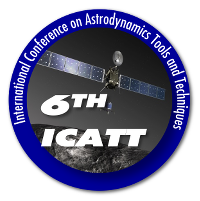Speaker
Mr
Helge Eichhorn
(Technische Universität Darmstadt Department of Computer Integrated Design)
Description
Due to the computationally intensive nature of astrodynamics tasks, astrodynamicists have relied on compiled programming languages such as Fortran for the development of astrodynamics software.
Interpreted languages such as Python on the other hand offer higher flexibility and development speed thereby increasing the productivity of the programmer.
While interpreted languages are generally slower than compiled languages recent developments such as JIT (just in time) compilers or transpilers have been able to close this speed gap significantly.
Another important factor for the usefulness of a programming language is its wider ecosystem which consists of the available open-source packages and development tools such as integrated development environments or debuggers.
The aim of this study is to identify the most promising programming language for developing next-generation astrodynamics systems and tools.
This target language shall offer an acceptable compromise between numerical performance and programmer productivity and possess a mature and sustainable ecosystem.
The study compares three compiled languages and three interpreted languages which were selected based on their popularity within the scientific programming community and technical merit.
The three compiled candidate languages are Fortran2008, C++14, and Java 8.
Python 3.5, Matlab 2015b, and Julia 0.4 were selected as the interpreted candidate languages.
All six languages are assessed and compared to each other based on their features, ease-of-use, and ecosystem.
Additionally idiomatic solutions to classical astrodynamics problems are developed in all candidate languages and compared based on their performance and simplicity.
| Applicant type | First author |
|---|
Primary author
Mr
Helge Eichhorn
(Technische Universität Darmstadt Department of Computer Integrated Design)
Co-authors
Mr
Frazer McLean
(CS GmbH)
Mr
Juan Luis Cano
(Universidad Politécnica de Madrid)
Prof.
Reiner Anderl
(Technische Universität Darmstadt Department of Computer Integrated Design)

